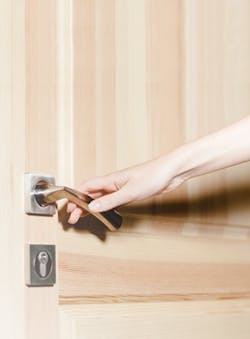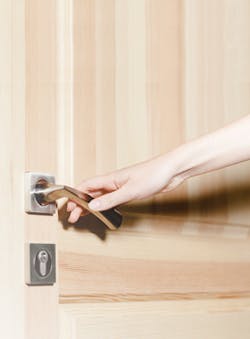Should I stay, or should I go?
By Vicki L. Munday, RDH
How many times in your career have you asked yourself that very question … Should I stay or should I go? If you have not yet done this, count your blessings. If you are new to your career, please read this article in its entirety and think carefully about what you see in a day, in a week, in a month, and how you feel about it and your career. First, make sure dental hygiene is indeed your career, not just a job. A job you can walk away from; a career requires an emotional connection and a desire to make a difference in not only the lives of your patients, but also in the profession.
In the life of a hygienist, there are times when we come to a crossroads in our working environment. Something is not sitting well and you need to do some soul searching. Have you been losing sleep over things that happen in your office? Ethics, both personal and professional, should guide your decision to stay or to seek employment elsewhere. However, in today's employment climate, with dental hygiene positions being few and far between, are you willing to stay when you know you should leave?
Are you a patient advocate or merely a machine for an employer who is only concerned about the bottom line? Does your employer laugh and call you a cash machine or a cash cow? Do you look the other way or do you voice your concerns?
---------------------------------------------------------
Consider reading these articles
- Tips on how to improve your dental treatment consent form: A legal perspective
- CDT 2013 Bottom Line Changes for Dental Hygiene
- Are you protecting your license?
---------------------------------------------------------
I have left offices over ethical issues more than once. I have witnessed insurance fraud and restorative procedures performed where there was no apparent need. I sought guidance from insurance professionals and learned the insurance industry is very well aware of what is happening. They watch for changes in billing patterns and then determine if an investigation is warranted. It makes you wonder if this practice is why reimbursement levels are where they are. Hmm...
How far over the occlusal surface onto the lingual does the prep have to go before you can charge for that additional surface? How much more money is made by charging for a three-surface filling when an MO was diagnosed; or when the dentist extends the prep slightly to the lingual, for example? This is the very thing the insurance industry is watching for. Stop and think for a moment – this additional surface will not show up on an X-ray.
How about being told to never take vertical bitewings? I asked why and was told that it was because they do not fit in the X-ray mounts. Really, this actually happened. I kindly suggested to the dentist that I determine the need for vertical X-rays based upon age and bone loss and, while he might not need vertical X-rays to diagnose decay, I certainly need them to determine the areas of bone loss and the topography of the bone. He relented and I resumed taking vertical X-rays.
I have seen a dentist charge for a three-surface restoration for class V. Most dentists I know do not routinely place restorations in abfraction areas, and I have never seen one charge for a three-surface restoration on a facial or buccal surface. How would you deal with these situations and others? Are you willing to leave your position over ethical differences? Does your employer offer you a bonus for production? Does each tooth diagnosed with needing a crown need a buildup or a root canal? Are you seeing a pattern of questionable activities? Have you chosen to stay in a bad situation because it is easier to stay than to go find a new position? Are you afraid of the competition? Are you worried about age discrimination? Remember, it is a bonus to be of a certain age and have a number of years of experience under your belt. Be sure you share these points in your cover letter and in the interview.
Where is your line in the sand? What are you willing to pretend you don't see to stay in your cushy job and take home that paycheck? Have you been ignoring that nagging feeling in your gut and the voice in your head? Are you lying awake in your bed at night stressing over this? Is it affecting your clinical judgment?
I can't tell you what to do. You need to be able to look at yourself in the mirror every day and ask if you are as ethical as you need to be as a dental hygienist. Do you work for an ethical employer, whether it is a large corporation or a solo practice? Are you willing to risk it all to leave a situation where patients are being ripped off? I saw a dentist do a filling on a child whose care was being paid for by the state. A restoration was done on a primary tooth that did not have decay on the occlusal surface. He not only gave an unnecessary injection, but he also cut into a healthy tooth, placed a filling, and billed the state. I was angry that a child was traumatized and my tax dollars were misused. I wrote my letter of resignation that night and have never regretted it. I walked away from the largest compensation package I have ever had and the most money I have ever earned per hour. My husband at the time was furious with me. We had discussed it, but obviously he was more concerned about my paycheck than the patients I was seeing. (We are no longer married.)
I have a very good relationship with two of the dental hygiene employment agencies in my area and they usually can keep me busy. I have several offices that ask for me by name. I am able to pay my mortgage and other bills. I do not live lavishly, but I sleep well, and the little voice in my head just laughs when I buy a pair of shoes just because I like them.
I am personal friends with several of my patients who have followed me from one practice to another. They are loyal to me, and not to the dentist. They trust me, and that is the highest compliment they can ever pay me.
Should you stay or should you go?
Talk with your hygiene peers. Bring this up for discussion at your local component meetings. Talk with your local employment security officer or the state insurance commissioner. You have resources available to you through ADHA.
Above all, be true to the dental hygiene oath you took when you graduated.
"In my practice as a dental hygienist, I affirm my personal and professional commitment to improve the oral health of the public, to advance the art and science of dental hygiene, and to promote high standards of quality care. I pledge to continually improve my professional knowledge and skills, to render a full measure of service to each patient entrusted to my care, and to uphold the highest standards of professional competence and professional conduct in the interest of the dental hygiene profession and the public it serves."
Remember this oath and what it means to our profession. Then ask yourself …
Should I stay or should I go?
VICKI L. MUNDAY, RDH, is a 1992 graduate of Shoreline Community College. She is currently president of LVS2SMILE Dental Hygiene Services, where she represents several dental products under her business license. She is the founder of Smiles for Veterans, a nonprofit organization that provides free dental care to homeless and low-income veterans. The first annual Smiles for Veterans event was hosted November 11 at Shoreline Community College.
Past RDH Issues

